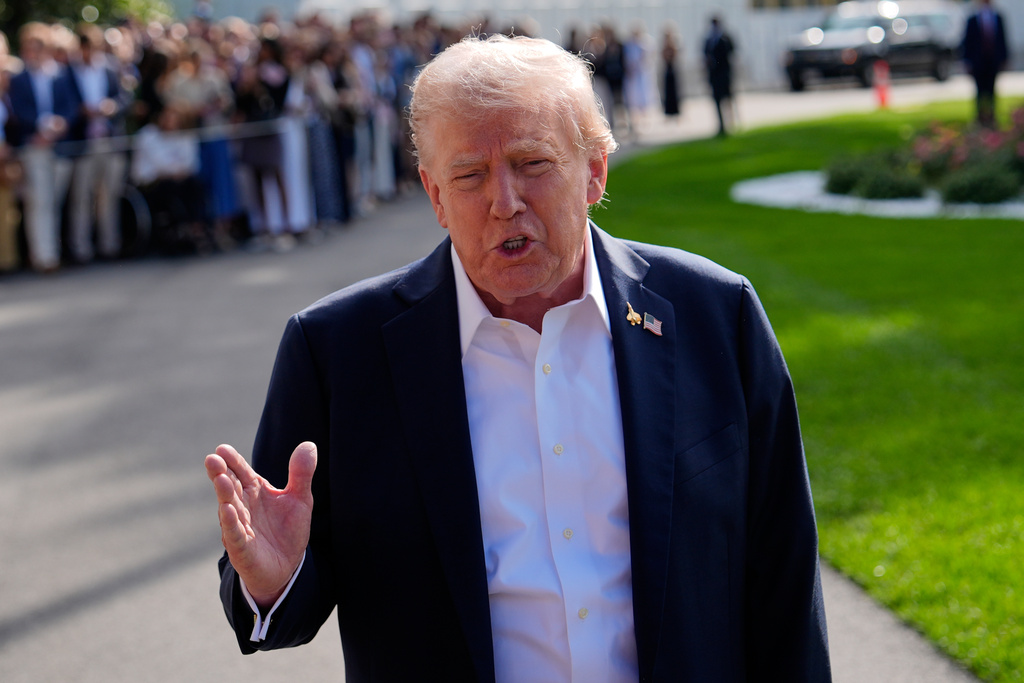


President Donald Trump announced another round of wide-ranging tariffs on Thursday, sparking questions about their implications for consumers and businesses.
In a series of messages to Truth Social, Trump announced plans to impose a 25% tariff on all “heavy” trucks made outside the United States. A 50% tariff “on all Kitchen Cabinets, Bathroom Vanities, and associated products” and a 30% Tariff on upholstered furniture is also coming, the president revealed. In addition, certain foreign companies will face a 100% tariff on any “outside branded or patented” pharmaceutical product, “unless a Company IS BUILDING their Pharmaceutical Manufacturing Plant in America,” Trump said.
Recommended Stories
All of the tariffs are set to take effect on October 1.
The pharmaceutical tariffs
The pharmaceutical tariffs appear to entail sweeping consequences. According to the Census Bureau, in 2024, the U.S. imported nearly $233 billion in pharmaceutical and medicinal products.
However, experts such as Neil Shearing, chief economist at Capital Economics, suggested Trump largely blunted the scope of the tariffs by conditioning them on whether pharmaceutical companies are building operations in the United States.
A slew of leading foreign-based companies have announced in recent months commitments to build or expand U.S. manufacturing operations, likely shielding them from the brunt of the latest tariffs. In attempts to prepare for possible tariffs, which Trump has repeatedly teased since taking office, drugmakers Eli Lilly, GlaxoSmithKline, AstraZeneca, GSK, Novartis, Novo Nordisk, Roche, Sanofi, Merck & Co., and Johnson & Johnson are among pharmaceutical companies that have unveiled plans to invest in the U.S. by building or expanding their presence in the country.
“The actual comment from the President is direct, but its impact may be somewhere between nebulous and negligible,” Jared Holz, an analyst with Mizuho, said in a note to clients. “All major players have some production presence domestically and almost all have announced increased investment directly tied towards local manufacturing.”
In his Truth Social post Thursday evening, Trump also declined to say he would place tariffs on generic pharmaceutical imports, which likely would have had a more negative impact, leading to drug shortages.
The truck tariffs
Trump said he was dropping a 25% tariff on qualifying trucks in order to protect domestic manufacturers, including Peterbilt, Kenworth, Freightliner, and Mack Trucks, from “unfair outside competition.”
“We need our Truckers to be financially healthy and strong, for many reasons, but above all else, for National Security purposes!” the president stated.
The tariffs will predominantly affect Mexico, known as the largest exporter of heavy-duty trucks to the United States. In 2024, the U.S. imported almost $128 billion in heavy vehicle parts from Mexico, accounting for approximately 28% of total U.S. imports, according to Mexico. Chrysler-parent Stellantis produces heavy-duty Ram trucks in Mexico, while Sweden’s Volvo Group is building a $700m heavy-truck factory in Monterrey.
Mexico has opposed new tariffs, issuing arguments to the U.S. Commerce Department in May that all Mexican trucks exported to the U.S. have, on average, 50% U.S. content, including diesel engines.
The U.S. Chamber of Commerce urged the White House earlier this year not to enact new truck tariffs, due to concerns that the top five import sources “are allies or close partners of the United States, posing no threat to U.S. national security.”
The furniture tariffs
Trump previewed the furniture tariffs in August, saying they would bring the Furniture Business back to North Carolina, South Carolina, and Michigan.” His comments come as furniture and wood products manufacturing employment in the U.S. has halved since 2000 to around 340,000 today, according to federal data.
“The reason for this is the large-scale ‘FLOODING’ of these products into the United States by other outside Countries,” the president explained Thursday. “It is a very unfair practice, but we must protect, for National Security and other reasons, our Manufacturing process.”
The tariffs will predominantly affect Vietnam and China. The U.S. imported $25.5 billion in furniture in 2024, according to trade outlet Furniture Today. Vietnam and China accounted for roughly 60% of the imports.
Industry leaders condemned the latest tariffs this week.
IKEA, a Swedish furniture giant, said the tariffs on furniture imports make doing business “more difficult”.
“The tariffs are impacting our business similarly to other companies, and we are closely monitoring the evolving situation,” the company said.
Nguyen Thi Thu Hoai from the Wood and Handicraft Association of Dong Nai province, one of Vietnam’s largest furniture clusters, called the tariff “unfair,” saying members “were shocked when we heard the news.”
The state of tariffs
Trump is imposing the tariffs using Section 232 of the Trade Expansion Act, which allows the administration to impose tariffs without congressional action.
The move marks the president’s decision to utilize more established powers to enact tariffs, as the Supreme Court is examining whether the International Emergency Economic Powers Act he used to justify the broader “Liberation Day” tariffs is lawful.
The latest round of tariffs has sparked differing reactions across the aisle.
White House trade adviser Peter Navarro framed the announcement as a win for the U.S on Friday.
“This is the three-dimensional chess of President Donald Trump: $17 trillion of new investment, $7 trillion in revenue, stronger supply chains, lower mortgage rates,” he said. “If we tariff it, they will come.”
Navarro’s comments came after Treasury Secretary Scott Bessent said in July that Washington could collect $300 billion by the end of the year, more than triple its annual tariff revenue. Trump said that he is directing some tariff revenue back to farmers this week.
SENATE PASSES THREE FUNDING BILLS AFTER STRIKING DEAL AHEAD OF AUGUST RECESS
Democratic critics said the tariffs would reduce free trade and raise prices for consumers.
“Trump’s tariffs are a tax on hardworking Americans,” Gov. Jared Polis (D-CO) wrote in a post to X. “Want to fix your truck, improve your property, and buy lower-cost prescription drugs? You will pay more because of these outrageous tariffs. Families shouldn’t have to shoulder higher costs because of bad policy.”
